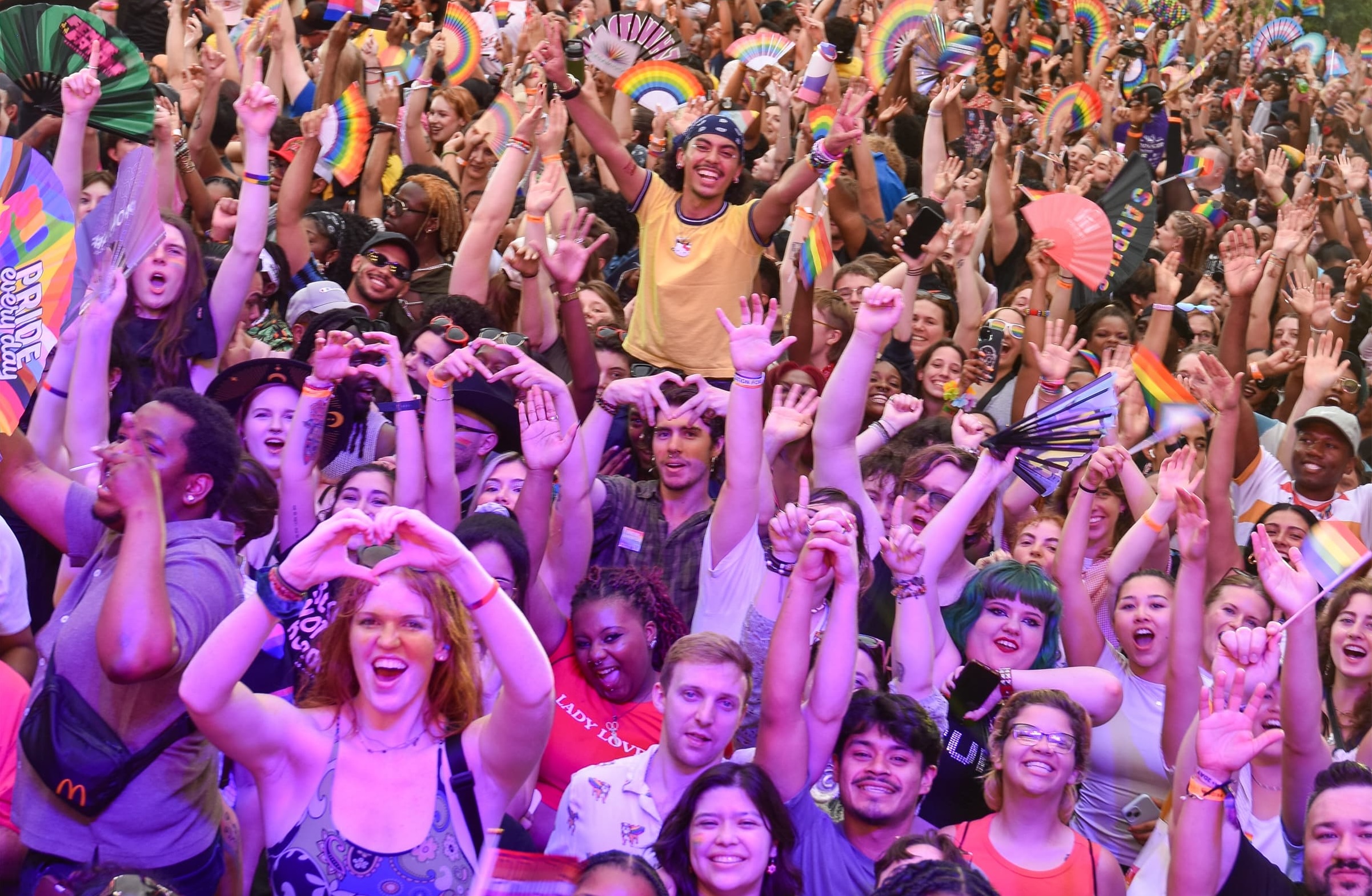More than 9 in 10 LGBTQ Adults Are Out to Someone
Pew data shows acceptance still lags, with gays and lesbians seeing more support than bisexual or trans people.

More than 9 in 10 LGBTQ adults are out to someone in their lives about their sexual orientation or gender identity — yet many remain closeted when it comes to family members or co-workers.
According to a Pew Research Center survey conducted in January, 96% of LGBTQ adults say they have told someone about their identity, while only 3% say they have not come out to anyone. However, up to one-third of LGBTQ adults — including those who have come out to “someone” — say they are not out to extended family members, such as grandparents, aunts and uncles, or cousins.
One in four employed LGBTQ adults say they aren’t out to their co-workers. Similarly, 23% say they aren’t out to their parents or the people who raised them, and 18% of those with siblings say they aren’t out to them. By contrast, only 5% of LGBTQ adults say they aren’t out to any of their friends.
A separate Pew survey conducted in the summer of 2024 found that about 8% of the overall U.S. population identifies as lesbian, gay, bisexual, or transgender.
Pew’s breakdown of “coming out” experiences separates sexual orientation from gender identity. Lesbian, gay, and bisexual respondents were asked about coming out in terms of their sexual orientation, while transgender respondents were asked only about their gender identity. The number of people who identified as “queer,” rather than LGBTQ, was too small for separate analysis.
Among those who have come out, 74% of gay or lesbian adults say all of their siblings have been accepting, compared to 65% of bisexuals and 58% of transgender respondents, according to Pew.
Gay and lesbian adults also report higher levels of acceptance from others in their lives than bisexual or transgender people. For example, 61% of all LGBTQ adults say their friends are accepting of their sexual orientation or gender identity, rising to 65% among gays and lesbians, compared to 58% of bisexuals and 57% of transgender respondents.
Overall, 46% of LGBTQ adults say their parents are accepting, 45% report acceptance from co-workers, and 27% say their extended family is accepting. Among gays and lesbians, those numbers rise to 52% for parents, 50% for co-workers, and 33% for extended family.
By comparison, bisexual adults — who make up the largest share of the LGBTQ community — report lower levels of acceptance from parents, extended family, and co-workers. Acceptance is even lower among transgender adults, with 31% reporting parental acceptance, 24% reporting acceptance at work, and only 11% saying their extended family is accepting.
Bisexual adults remain the least likely to be out to family or co-workers, while transgender adults are more open overall, and gay and lesbian adults are the most likely to be out across every group.
Even among friends, bisexuals are more likely to be closeted, with 9% saying they’re not out to their social circle, compared to 5% of transgender people and a mere 1% of gays and lesbians.
Eighty-two percent of LGBTQ Americans say they first realized they might be lesbian, gay, bisexual, queer, or transgender before age 18. More than half (58%) say they felt that way before age 14, and one in four (25%) say they knew before age 10. Still, realizing one’s identity and sharing it with others are often very different milestones. Despite recognizing their identity early, most LGBTQ adults remained closeted until adulthood.
There’s little difference among LGBTQ identity groups in when they first came out. The greater divide is generational: 49% of those under 50 came out before age 18, compared to just 24% of those 50 or older.
LGBTQ adults say gays and lesbians generally face greater social acceptance than bisexual, transgender, or nonbinary people — and most agree that acceptance overall has grown in recent years and is likely to keep rising.
When asked what could increase acceptance, most LGBTQ adults pointed to support from religious leaders, more openly LGBTQ politicians and public figures, and greater representation in entertainment and media. Far fewer believed that corporate or organizational statements of support would make a meaningful difference.
Two-thirds of LGBTQ adults said the Supreme Court’s 2015 Obergefell v. Hodges decision legalizing same-sex marriage made people more accepting of same-sex couples, with married respondents even more likely to say so.
Despite growing acceptance, discrimination remains widespread. About two-thirds of gay, lesbian, and transgender adults say they’ve been targets of slurs or jokes, and roughly 4 in 10 LGBTQ people have feared for their safety because of their identity.
Support Metro Weekly’s Journalism
These are challenging times for news organizations. And yet it’s crucial we stay active and provide vital resources and information to both our local readers and the world. So won’t you please take a moment and consider supporting Metro Weekly with a membership? For as little as $5 a month, you can help ensure Metro Weekly magazine and MetroWeekly.com remain free, viable resources as we provide the best, most diverse, culturally-resonant LGBTQ coverage in both the D.C. region and around the world. Memberships come with exclusive perks and discounts, your own personal digital delivery of each week’s magazine (and an archive), access to our Member's Lounge when it launches this fall, and exclusive members-only items like Metro Weekly Membership Mugs and Tote Bags! Check out all our membership levels here and please join us today!





























You must be logged in to post a comment.